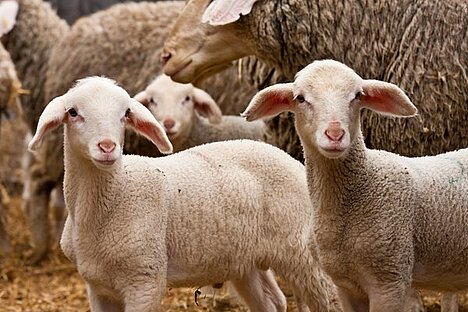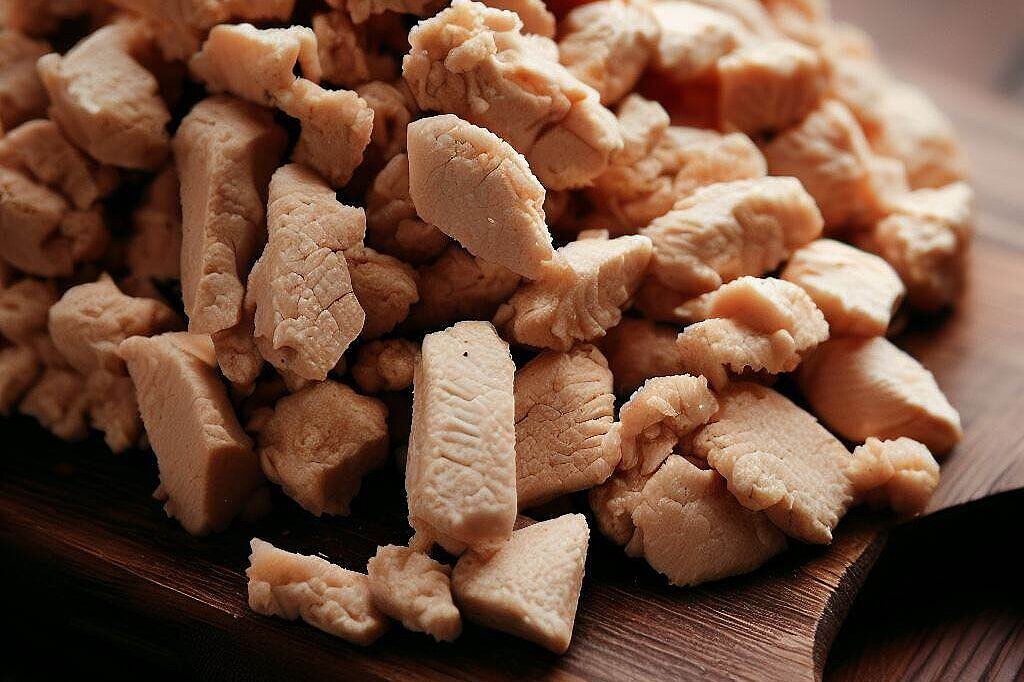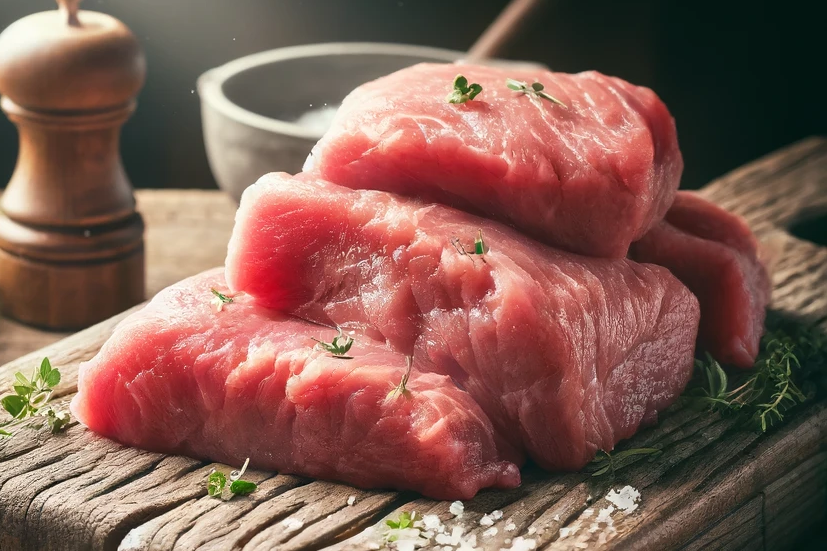Lamb protein

Lamb protein is a popular ingredient in many dog foods. But what is lamb protein and what are the advantages and disadvantages for your dog? In this article, you'll find out everything you need to know about lamb protein.
What is lamb protein?
Lamb protein is the protein obtained from the meat of young sheep. It is a high-quality protein source that contains many essential amino acids that your dog needs to build and maintain its muscles, skin, hair and organs.
Lamb protein also has a high iron content, which contributes to the formation of red blood cells and improves the oxygen supply to your dog's body. Lamb protein also contains zinc, which strengthens your dog's immune system and promotes wound healing.
What are the benefits of lamb protein for dogs?
Lamb protein has a number of benefits for dogs, especially those that are sensitive or allergic to other types of meat such as beef or chicken. This is because lamb protein is a so-called hypoallergenic protein source, which means that it triggers fewer allergic reactions than other proteins.
Lamb protein can therefore help to alleviate or prevent skin problems, itching, hair loss or digestive problems in dogs that are sensitive to other proteins. Lamb protein may also be suitable for dogs suffering from kidney or liver problems as it contains fewer purines than other meats. Purines are substances that are broken down into uric acid during digestion and can lead to kidney stones or gout if the concentration is too high.
What are the disadvantages of lamb protein for dogs?
Lamb protein also has some disadvantages for dogs that you should be aware of. Firstly, lamb protein is relatively high in fat compared to other types of meat. This means that you need to adjust the amount you feed your dog to prevent it from becoming overweight or obese.
Secondly, lamb protein can have a high copper content, which can be problematic for some dog breeds. Copper is a trace element that your dog's body needs in small amounts. However, too much copper can lead to copper storage disease, which damages the liver and leads to symptoms such as loss of appetite, vomiting, diarrhea or jaundice.
Copper storage disease mainly affects dog breeds such as Bedlington Terriers, West Highland White Terriers or Doberman Pinschers, which have a genetic predisposition to it. If you have such a dog, you should therefore be careful when feeding lamb protein and ask your vet for advice.
How can you feed your dog lamb protein?
If you want to feed your dog lamb protein, you have various options. For example, you can give him fresh or cooked lamb or buy him a dry or wet food with lamb as the main ingredient.
It is important that you pay attention to the quality and composition of the food. The lamb should be as lean as possible and contain no bones. The ready-made food should contain as little grain, sugar or artificial additives as possible and instead contain lots of vegetables, herbs and minerals.
You should also make sure that the food doesn't just consist of lamb, but also contains other sources of protein such as fish or egg. This ensures a balanced diet for your dog and avoids unbalanced stress on its organs.
Lamb protein is a high-quality and hypoallergenic protein source for dogs that offers many health benefits. However, it can also have some disadvantages, such as a high fat or copper content, which you should take into account.
If you want to feed your dog lamb protein, you should therefore pay attention to the quality and quantity of the food and ask your vet for advice if necessary. This way you can ensure that your dog stays healthy and happy.
If you notice any signs of hypersensitivity or poisoning in your dog, you should see your vet immediately. We are not a substitute for a vet, but we try to be as accurate as possible. Every dog reacts differently and we recommend you get a second opinion or consult your vet if in doubt.
Stay healthy and take good care of your four-legged friend!😊
Similar to Lamb protein
Deer protein is an animal protein obtained from the meat of deer. Deer are wild animals that feed mainly on grasses and herbs. As a result, they have very lean and high-quality meat that is rich in...
Chicken protein is a collective term for various proteins that are obtained from chicken meat, offal or feathers. Proteins are important building blocks for your dog's body and fulfill many...
Calf protein comes from the meat of young cattle and is known for its high nutritional value and easy digestibility. It is often used in high-quality dog food, both in fresh and processed form, and...
Salmon protein is obtained from the flesh of salmon and is known for its high content of essential amino acids and omega-3 fatty acids. This protein source is characterized by high digestibility and...



